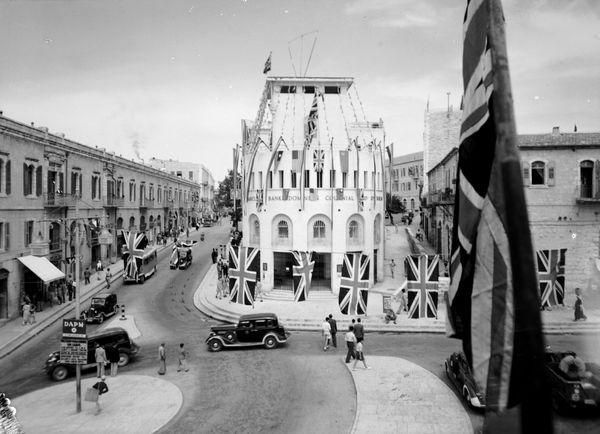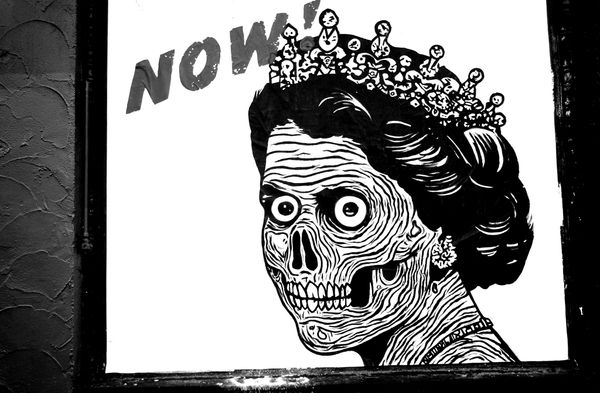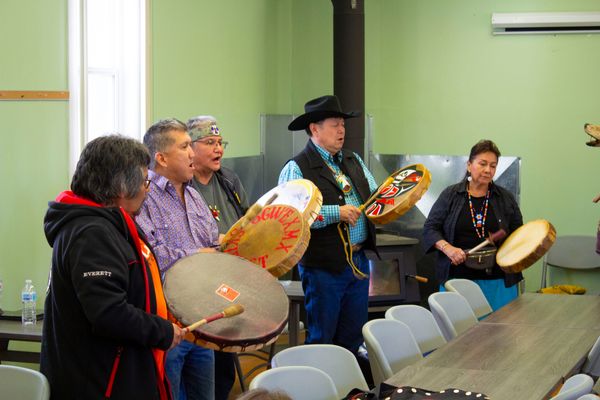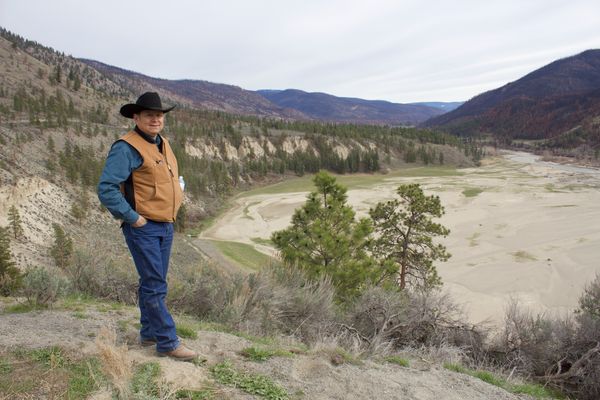Earlier this year, protests were organized across Canada in solidarity with Wet’suwet’en land defenders fighting against the construction of the Coastal GasLink Pipeline through their unceded territory. These protests were met with an onslaught of demonization from a significant chunk of corporate Canadian media commentators.
I recently read through these articles published in the National Post, Globe and Mail, Toronto Sun and Toronto Star. I found that writers, and entire editorial boards, condemned the protests for a wide variety of reasons, but a few came up in almost every article on the topic: they ‘turned violent’; they were illegal; they inconvenienced people and impacted their ability to feed their families.
Most writers either explicitly or implicitly made the point that their opposition wasn’t primarily because of the particular cause at hand but rather was due to a violation of “law and order.” These columnists often wrote that they’d be strongly opposed to anyone protesting this way regardless of their cause, because the law applies to all. Here are some examples:
- “This is wrong and lawless. Reports have materialized of people unable to get home to their families and even missing funerals because of this criminal conduct.” – Toronto Sun Editorial Board
- “That should set straight commentators trying to justify what was nothing more than dangerous criminal behaviour on non-native land with homes and families and against a train with innocent souls on board.” – Joe Warmington, Toronto Sun
- “Canada is slowly turning from democracy to mobocracy, as the rule of law is tested from coast to coast.” – John Ivison, National Post
- “It is critical to the economy, and to people whose jobs are in jeopardy, that railway service return to normal. It is also essential to society’s sense of legality. Patience is a virtue but, at some point, it becomes incumbent on the police to remove protesters who defy the courts.” – Globe and Mail Editorial Board
It’s been several months since most of these articles were published, and there’s cause to question if concern for “rule of law” was really what motivated these writers.
In mid-September, the Sipekne’katik First Nation set up a lobster fishery in Nova Scotia, a right upheld by the Supreme Court in 1999. They were almost immediately met with a sabotage campaign from settler fishermen, which ramped up earlier this month.
The settler fishers, motivated by anti-Indigenous racism and the desire to keep perceived outsiders from cutting into their profits, no matter the extent, have since:
- Stolen lobster traps
- Destroyed lobster catches
- Sunk boats owned by Indigenous fishers
- Torched a van owned by an Indigenous fisher
- Mobbed a lobster storage compound that was later burned to the ground in suspected arson
- Assaulted Mi’kmaq fishers
To be absolutely clear, I’m not trying to draw any sort of equivalence between the justified actions against the Coastal GasLink Pipeline and this detestable campaign against Mi’kmaq fishers. They aren’t the same, and only the most disingenuous, surface, liberal understanding of the two would lead anyone to believe so.
However, the characteristics media commentators portrayed the Wet’suwet’en protests as being defined by (violent, illegal, detrimental to people trying to provide for their families) are genuinely applicable to the lobster mobs. And so, if commentators were being honest about what motivated their decision to write so harshly about the Wet’suwet’en protests, we’d see a similar condemnation of the white lobster fishers from these same writers, right?
Well, that’s not what has happened.
I tallied 53 opinion articles critical of the Wet’suwet’en protests published at the Post, Sun, Star and Globe. (I may have inadvertently missed some, but did my best to find them all.) The vast majority of these (46) came from the Post and the Sun, but every single newspaper board published an editorial condemning the protests.
Here is the full list of (mostly white, male) writers who condemned the Wet’suwet’en protests: Brian Lilley, Mark Bonokoski, Joe Warmington, Anthony Furey, Lorne Gunter, Tarek Fatah, John Snobelen, Candice Malcolm, Mark Towhey, Stephen LeDrew, Chris Selley, John Ivison, Colby Cosh, Rex Murphy, Leonid Sirota, Asher Honickman, John Robson, Jackson Doughart, Jonathan Kay, Raymond de Souza, Conrad Black, Erin O’Toole, Gary Mason, Rosie DiManno, Toronto Sun editorial board, Toronto Star editorial board, National Post editorial board, Toronto Star editorial board.
Now, here is the full list that condemned the Wet’suwet’en protests and also condemned the lobster mobs: Colby Cosh, and the Star and Globe’s editorial boards. Seriously, that’s it — 53 articles to just four, with the vast majority of these writers not mentioning the lobster mobs at all. (There was also an article from Lorne Gunter, who wrote several anti-Wet’suwet’en protest pieces, defending the lobster mob’s cause without condemning their violence at all.)
Moreover all four of the articles condemning the lobster fishers were framed through a “both sides” narrative, unlike most of the Wet’suwet’en columns. For example, the Globe’s editorial board wrote, “Indigenous fishermen aren’t supposed to be the ones taking it upon themselves to interpret and uphold treaty rights, and neither can non-Indigenous fishermen be allowed to use vigilante violence to impose their interpretation of the limits of those rights.”
(Despite this, Cosh did write: “If the RCMP ever gets off its duffs and finds those responsible for burning down lobster storage facilities, it can find the very deepest part of Lobster Fishing Area 34 and drop them in it, and I’ll donate the cinder blocks.”)
This doesn’t mean the writers in question secretly support the violent lobster mobs. It does appear however that none of them found this violent campaign against Indigenous people important enough to write about, which is ultimately what matters. Given their invective against the Wet’suwet’en protests, this leaves a lot of questions as to why the lobster mobs haven’t gotten anywhere near as much attention from columnists.
Regardless of whatever this disparity reveals (or doesn’t) about the writers listed above, it’s clear proof of how the media can function to demonize Indigenous people while letting those that attack them off the hook.








Member discussion